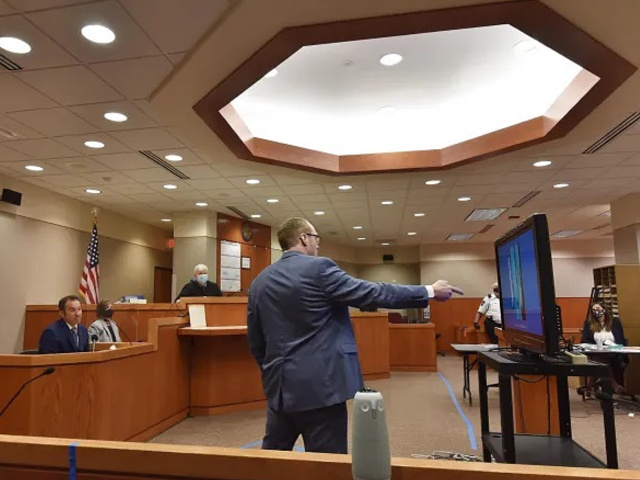The first day of the new cashless bail system delivered “absurd” and “incoherent” results for deep blue Illinois as far as McHenry County state’s attorney Patrick Kenneally is concerned.
The Safety, Accountability, Fairness and Equity-Today (SAFE-T) Act officially went into effect on Sept. 18 after being signed into law by Illinois Democrat Gov. J.B. Pritzker in February of 2021.
The law was supposed to go into effect on January 1 of this year but was delayed by months of bipartisan lawsuits aimed at trying to stop it.
The new law has earned criticism from both sides of the aisle. For instance, Will County state’s attorney Jim Glasgow, who is a Democrat, criticized the law last year, saying, “It will destroy the state of Illinois.”
Some of the results of its first day were not encouraging.
Kenneally, who helms the attorney general’s office in the county just to the northeast of Chicago, says that at least two suspects he feels are a danger to the community were allowed to simply walk out of jail after their court date.
“The first day operating under the SAFE-T Act resulted in the absurd and incoherent results many predicted,” Kenneally said Monday, according to the Lake & McHenry County Scanner.
One defendant, Thomas M. Purdy, 36, who was charged with criminal damage to property, violation of pretrial release, electronic harassment, and resisting a peace officer, had been arrested for trying to batter down the door of his ex-girlfriend’s home.
It was not a first offense. Purdy had already violated other court orders to stay away from the woman. Not only that, but he has other marks on his record: a 2006 conviction for eluding a police officer and another from 2015 when he was convicted on a gun charge — the latter of which landed him a four-and-a-half-year prison sentence.

McHenry County State’s Attorney Patrick Kenneally points to photographs at a sentencing hearing Thursday, July 16, 2020, in Woodstock, Ill. (John Starks/Daily Herald via AP, Pool)
The second suspect Kenneally thought should have remained in custody is Pedro Gomez-Cuevas, 23, who was arrested on a series of drunk driving charges, driving with open alcohol in the car, driving on a suspended license, and several other charges. He even tried to drive away from the officer who stopped him.
It was not his first arrest for drunk driving either.
“As has been said many times, the most glaring problem with the SAFE-T Act is that pretrial release decisions are being made based on the type of charge a defendant faces, not a defendant’s dangerousness or likelihood of complying with court orders,” Kenneally warned.
“Here we have two defendants, which, based on the allegations and criminal histories, might allow a judge to reasonably conclude that they present a clear risk of disregarding the law and/or court orders if released. Tragically, under the SAFE-T Act, a judge is without power to detain defendants in these types of cases even if he believes the community is endangered,” Kenneally said.
Then there was the woman in nearby Cook County who was arrested for assaulting a police officer but who was also the happy recipient of the SAFE-T Act and allowed to walk free after being arrested.
Esmeralda Aguilar, 24, had been arrested Sunday on four counts of aggravated battery to a peace officer after police said she used pepper-spray on four Chicago officers during Mexican Independence Day festivities, the Washington Times reported.
However, despite her attack on the police, Aguilar was released without bail on Monday morning thanks to the SAFE-T Act.
“Reports that on the very first day of no cash bail, a violent offender arrested for attacking four Chicago Police Officers, sending two of them to the hospital, was immediately released because the Cook County State’s Attorney’s Office didn’t even bother to file a motion to seek detaining the accused are problematic,” Illinois state Sen. John Curran told WFLD-TV.
“This highlights the misplaced priorities of Illinois’ criminal justice system when the prosecutor prioritizes the freedom of a violent offender over the safety of those police officers dedicated to protecting and serving our communities. Is there any wonder why police recruitment is at an all-time low in this state?” Curran asked.
Elsewhere in the state, in Kane County, a man who violated an order of protection and who had a previous police record, was allowed to walk free until his next court date, according to Capitol News Illinois.
Cases like these occurred all across the Land of Lincoln. And they will not be the last as this experiment is social justice rolls inevitably on in Illinois.
Follow Warner Todd Huston on Facebook at: facebook.com/Warner.Todd.Huston, or Truth Social @WarnerToddHuston.

COMMENTS
Please let us know if you're having issues with commenting.